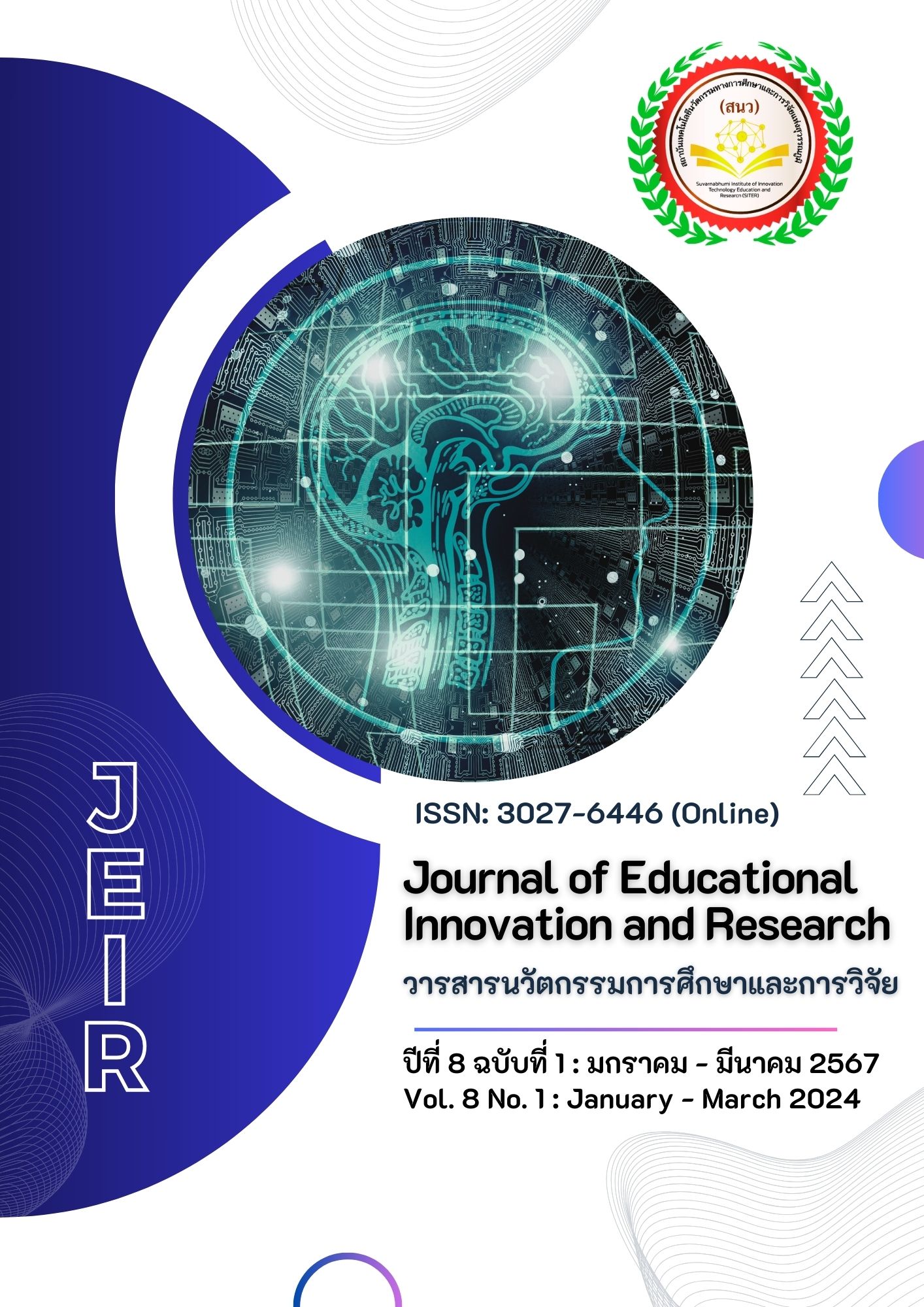Comparison of Causal Factors Influencing Behavioral Intention of Small-Scale Marathon Events Among Runners with Different Involvement
Main Article Content
บทคัดย่อ
This article aimed to develop a causal relationship model of factors influencing behavioral intention of small-scale marathon event runners and to compare a difference of the causal relationship models among high and low involvement runners. This research was a quantitative research using the questionnaire with reliability value at 0.890. The Sample was 480 runners participated in small-scale marathon events recurring in Bangkok and Perimeter. The data were analyzed by using Confirmatory Factor Analysis and Structural Equation Model. The results found that the causal relationship model of factors influencing behavioral intention was fit. Service quality and destination image had direct effects on satisfaction which acted likewise as a significant mediator affecting behavioral intention indirectly. Furthermore, there were significant direct effects from destination image and satisfaction to behavioral intention. However, there was no significant difference of the models among high and low involved runners. Therefore, small-scale marathon event managers should pay attention to satisfaction because it can play an essential role in behavioral intention consisting of recommendation to others and retention.
Service quality should be provided by concentrating on satisfying runners when organizing the events. In addition, the cities hosting the events need to serve destination image to runners for perceiving appreciation during the trips. Consequently, these were advantageous for developing small-scale marathon events sustainably.
Article Details

อนุญาตภายใต้เงื่อนไข Creative Commons Attribution-NonCommercial-NoDerivatives 4.0 International License.
เอกสารอ้างอิง
Alexandris, K., Theodorakis, N. D., Kaplanidou, K., & Papadimitriou, D. (2017). Event quality and loyalty among runners with different running involvement levels: The case of “The Alexander the Great” International Marathon. International Journal of Event and Festival Management, 8(3), 292-307.
Allameh, S. M., Pool, J. K., Jaberi, A., Salehzadeh, R., & Asadi, H. (2015). Factors influencing sport tourists’ revisit intentions. Asia Pacific Journal of Marketing and Logistics, 27(2), 191-207.
Bigné, E., Mattila, A., & Andreu, L. (2008). The Impact of Experiential Consumption Cognitions and Emotions on Behavioral Intentions. Journal of Services Marketing, 22, 303-315.
Chen, X., Yim, B. H., Tuo, Z., Zhou, L., Liu, T., & Zhang, J. J. (2021). “One Event, One City”: Promoting the Loyalty of Marathon Runners to a Host City by Improving Event Service Quality. Sustainability, 13(7), 3795-3808.
Chi, C. G., & Qu, H. (2008). Examining the structural relationships of destination image, tourist satisfaction and destination loyalty: An integrated approach. Tourism Management, 29(4), 624-636.
Fotiadis, A. K., Xie, L., Li, Y., & Huan, T.-C. T. (2016). Attracting athletes to small-scale sports events using motivational decision-making factors. Journal of Business Research, 69, 5467-5472.
Funk, D.C., & James, J. (2001). The psychological continuum model: a conceptual framework for understanding an individual’s psychological connection to sport. Sport Management Review,4(2), 119-150.
Getz, D., & Andersson, T. (2010). The event-tourist career trajectory: a study of high-involvement amateur distance runners. Scandinavian Journal of Tourism and Hospitality, 19(4), 468-491.
Hair, J., Sarstedt, M., Hopkins, L., & G. Kuppelwieser, V. (2014). Partial least squares structural equation modeling (PLS-SEM). European Business Review, 26(2), 106-121.
Huang, C. H., Liu, W. T., Chuang, C. L., & Huang, Y. H. (2018). The service quality and community attribute effect impacts on satisfaction for marathon event. International Journal of Economics and Business Administration, 4(3), 105-109.
Jin, N., Lee, H., & Lee, S. (2013). Event Quality, Perceived Value, Destination Image, and Behavioral Intention of Sports Events: The Case of the IAAF World Championship, Daegu, 2011. Asia Pacific Journal of Tourism Research, 18(8), 849-864.
Kaplanidou, K., & Vogt, C. (2007). The interrelationship between sport event and destination image and sport tourists' behaviours. Journal of Sport & Tourism, 12(3), 183-206.
Koo, S. K., Byon, K., & Baker, T. (2014). Integrating Event Image, Satisfaction, and Behavioral Intention: Small-scale marathon event. Sport Marketing Quarterly, 23(3), 127-137.
Kyle, G. T., Theodorakis, N. D., Karageorgiou, A., Lafazani, M. (2010). The effect of service quality on customer loyalty within the context of ski resorts. Journal of Park and Recreation Administration, 28(1), 1-15.
Milovanovic, I., Matic, R., Alexandris, K., Maksimovic, N., Miloševic, Z., & Drid, P. (2019). Destination Image, Sport Event Quality, and Behavioral Intentions: The Cases of Three World Sambo Championships. Journal of Hospitality & Tourism Research, 45(7),1150-1169.
Moon, K. S., Ko, Y. J., Connaughton, D. P., & Lee, J. H. (2013). A mediating role of destination image in the relationship between event quality, perceived value, and behavioral intention. Journal of Sport & Tourism, 18(1), 49-66.
Ninomiya, H., Kaplanidou, K., Hu, W., Matsunaga, K., & Nagazumi, J. (2019). An examination of the relationship between destination image and marathon participants’ behaviours. Journal of Sport & Tourism, 23(4), 225-241.
Oliver, R. L., (2010). Satisfaction: A Behavioral Perspective on the Consumer: A Behavioral Perspective on the Consumer. Routledge.
Parasuraman, A., Zeithaml, V. A., & Berry, L. L. (1985). A conceptual model of service quality and its implications for future research. Journal of marketing, 49(4), 41-50.
Smith, A., & Stevenson, N. (2009). A review of tourism policy for the 2012 Olympics. Cultural Trends, 18(1), 97-102.
Song, Z., Su, X., & Li, L. (2013). The Indirect Effects of Destination Image on Destination Loyalty Intention Through Tourist Satisfaction and Perceived Value: The Bootstrap Approach. Journal of Travel & Tourism Marketing, 30(4), 386-409.
Theodorakis, N. D., Kaplanidou, K., & Karabaxoglou, I. (2015). Effect of event service quality and satisfaction on happiness among runners of a recurring sport event. Leisure Sciences, 37(1), 87-107.
Wu, M. H., & Liu, C. C. (2017). The Influences of Motivations, Past Experiences, Destination Image, Event Image, Satisfaction, and Intentions on Participation in Taiwan Road Running Events. The Journal of Human Resource and Adult Learning, 13(1), 26-38.
Xiao, Y., Ren, X., Zhang, P., & Ketlhoafetse, A. (2019). The effect of service quality on foreign participants’ satisfaction and behavioral intention with the 2016 Shanghai International Marathon. International Journal of Sports Marketing and Sponsorship, 21(1), 91-105.
Yoshida, M., & James, J. (2010). Customer Satisfaction With Game and Service Experiences: Antecedents and Consequences. Journal of Sport Management, 24, 338-361.


